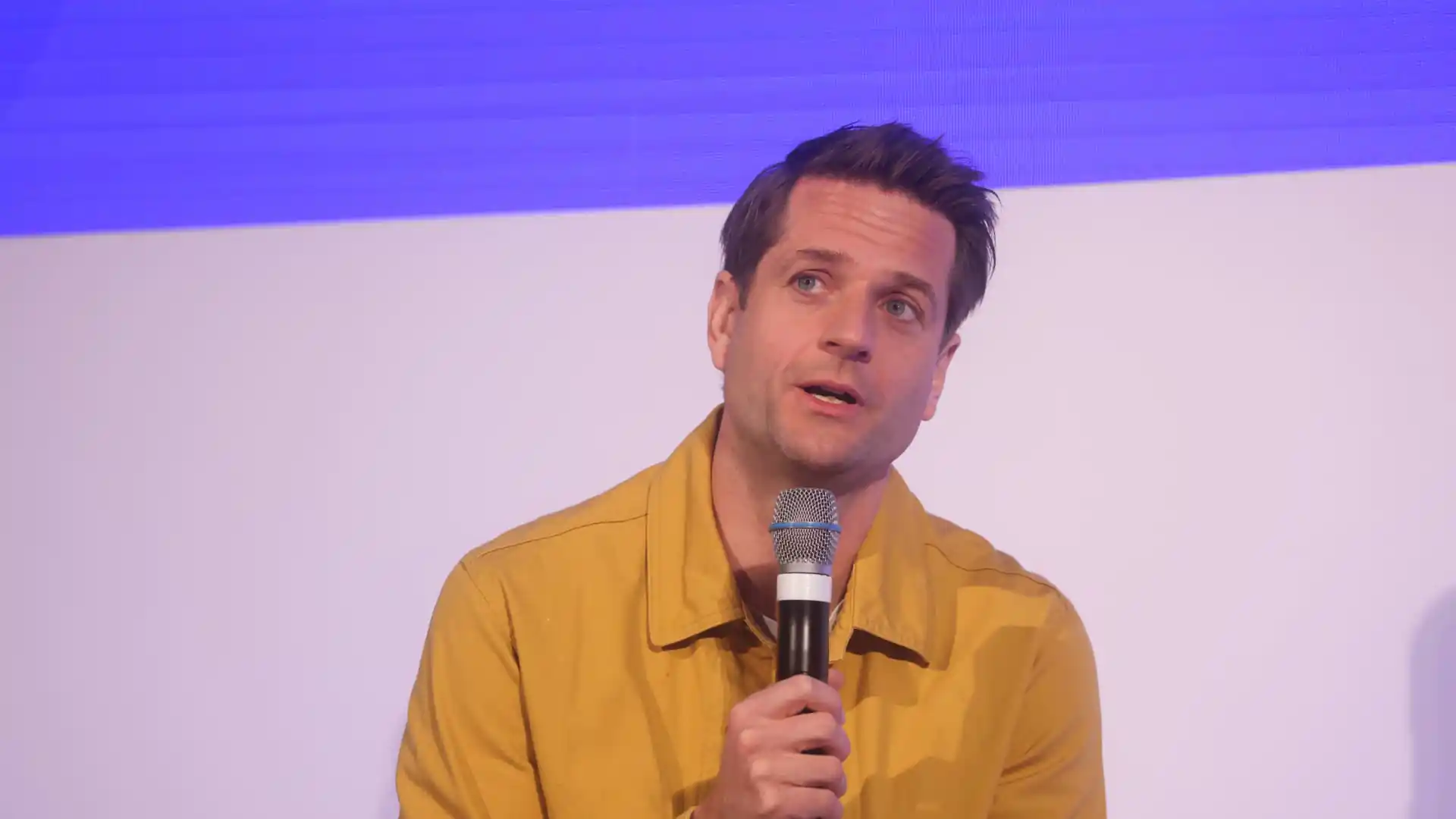[ad_1]
Sebastian Siemiatkowski, CEO of Klarna, speaking at a fintech event in London on Monday April 4, 2022.
Chris Ratcliffe | Bloomberg via Getty Images
The brain drain of European tech talent is the biggest risk factor facing Klarna as the Swedish payments company moves closer to its upcoming IPO, according to CEO Sebastian Siemiatkowski.
In a wide-ranging interview with CNBC this week, Siemiatkowski said unfavorable rules in Europe on employee stock options — a common form of stock compensation that tech companies offer their staff — could lead to Klarna to lose talent to American tech giants such as Google, Apple And Meta.
As Klarna – which is known for its popular buy now, pay later plans – prepares for its IPO, Europe’s lack of attractiveness as a workplace for the best and brightest Brilliance has become a much bigger fear, Siemiatkowski told CNBC.
“When we looked at the risks of going public, what is the number one risk in my opinion? Our compensation,” said Siemiatkowski, who is approaching his 20th year as CEO of the financial technology company. He was referring to company risk factors, which are a common element of IPO prospectus filings.
Compared with a basket of its publicly traded peers, Klarna offers only a fifth of its equity as a share of its revenue, according to a study obtained by CNBC for which the company paid consulting firm Compensia. However, the study also showed that Klarna’s publicly traded peers offer six times more equity than it.
“Lack of predictability”
Siemiatkowski said there are a number of obstacles preventing Klarna and its European tech peers from offering more beneficial stock option plans to employees in the region, including costs that erode stock values allocated to them upon membership.
In the UK and Sweden, he explained that employees’ social security contributions deducted from their share awards are “uncapped”, meaning staff in those countries stand to lose more than those in companies , for example, in Germany and Italy, where concrete conditions exist. plugs in place.
The higher a company’s stock price, the more it must contribute to employee benefits, making it difficult for companies to plan their expenses effectively. Britain and Sweden also calculate fringe benefits on the actual value of employees’ equity when selling during liquidity events such as an IPO.
“It’s not that companies aren’t willing to pay this,” Siemiatkowski said. “The biggest problem is the lack of predictability. If personnel costs are entirely associated with my stock price, and this has implications on my NLP [profit and loss] …this has financial implications for the company. This makes planning impossible. »
Last year, Siemiatkowski signaled more clearly Klarna’s ambitions to go public soon. In an interview with CNBC’s “Closing Bell,” he said a 2024 listing was “not impossible.” In August, Bloomberg reported that Klarna was close to selecting Goldman Sachs as lead underwriter for its 2025 IPO.
Siemiatkowski declined to comment on when the company would go public and said nothing had been confirmed yet on the timeline. Nonetheless, when it goes public, Klarna will be one of the first big fintech names to successfully debut on the stock market in several years.

Affirmone of Klarna’s closest competitors in the United States, went public in 2021. Afterpay, another Klarna competitor, was acquired by Jack Dorsey’s payments company. Block in 2021 for $29 billion.
Klarna brain drain a “risk”
A study last year by venture capital firm Index Ventures found that, on average, employees of early-stage European startups own about 10% of the companies they work for, compared to 20% in the United States. .
Out of a selection of 24 countries, the United Kingdom ranks very well overall. However, it does a less good job of addressing the administrative burdens associated with processing these plans. Sweden, meanwhile, fares less well, performing poorly on factors such as plan scope and strike price, according to the Index study.
Asked if he was concerned that Klarna employees would instead consider leaving the company for a US technology company, Siemiakowski said it was a “risk”, especially since the he company is expanding aggressively in the United States.
“The bigger we become in the U.S. market, the more people see us and recognize us — and the more their LinkedIn inbox is going to be pinged with other people’s offers,” Siemiatkowski told CNBC.
He added that in Europe there is “unfortunately a feeling that you shouldn’t pay really talented people that much”, particularly when it comes to people working in the financial services sector.
“This feeling is more widespread than in the United States, and this unfortunately hurts competitiveness,” said the Klarna co-founder. “If you are approached by Googlethey will fix your visa. They will transfer you to the United States. These problems that once existed are no longer there.”
“The most talented talent pool today is very mobile,” he added, noting that it is now easier for staff to work remotely from a region outside of a company’s physical offices. business.

